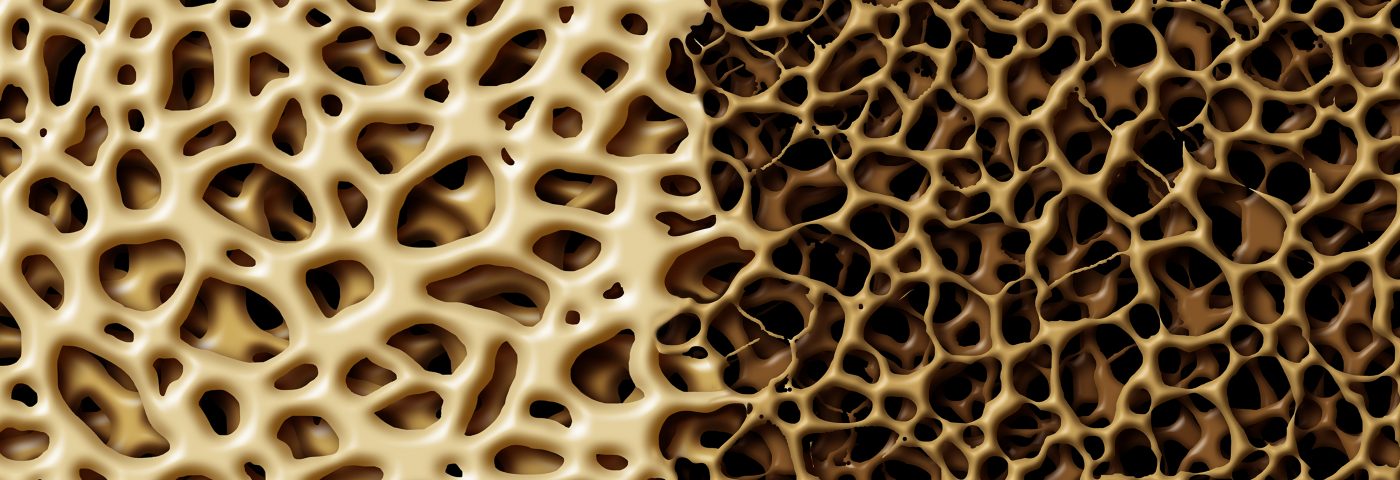The presence of certain autoantibodies in rheumatoid arthritis (RA) is linked to bone loss in patients with early disease, suggesting that bone remodeling in rheumatoid arthritis is directly connected to autoimmunity.
Findings from the study “Anti-citrullinated protein antibodies and high levels of rheumatoid factor are associated with systemic bone loss in patients with early untreated rheumatoid arthritis,” suggests further that patients with early RA who have the antibodies should be monitored more closely for osteoporosis, a condition characterized by brittle, porous, and fragile bones.
The study was published in the October issue of Arthritis Research & Therapy.
Researchers already believed that inflammatory mediators, such as cytokines, drive osteoporosis in rheumatoid arthritis, and more recent studies noted that autoantibodies may be directly involved in bone loss.
Anti-citrullinated protein antibodies (ACPA) are usually present for years before a person develops signs of arthritis. Because studies had linked ACPA to changes in the bones of people without the disease, researchers at IRCCS Policlinico San Matteo Foundation and the University of Pavia, both in Italy, set their sights on potential links in newly diagnosed patients with rheumatoid arthritis.
Recruited for the study were 155 patients in early RA who had not yet been treated. Researchers measured bone mineral density in the lower spine and hip, and recorded other types of symptoms. Blood tests identified autoantibodies.
Results showed that 25.5 percent of patients had reduced bone density in the spine, and 19.4 had lower density in the hip. Even when accounting for age, gender, menopausal status, smoking, and body mass index (BMI) — factors that could impact the result — researchers found no connections between osteoporosis and symptom duration, disease activity, disability, or joint damage.
Instead, the presence of ACPA, even at low levels, was linked to bone loss in the spine. If a patient also had rheumatoid factor, the link between ACPA and bone loss was stronger. In contrast, bone loss in the hip was only linked to high levels of ACPA and rheumatoid factor, suggesting that higher levels of antibodies are needed to destroy the hip bone.
“Our data suggest that ACPA are associated with systemic bone loss from the earliest stages of RA (rheumatoid arthritis), and high levels of RF (rheumatoid factor) further increase the risk. ACPA-RF-positive patients with early RA should thus be carefully monitored for the development of generalized osteoporosis beyond the assessment of traditional risk factors,” the report concluded.



A very alarming factor to the patients to keep an eye on. Seems like it can lead into severe trouble if left not treated right.